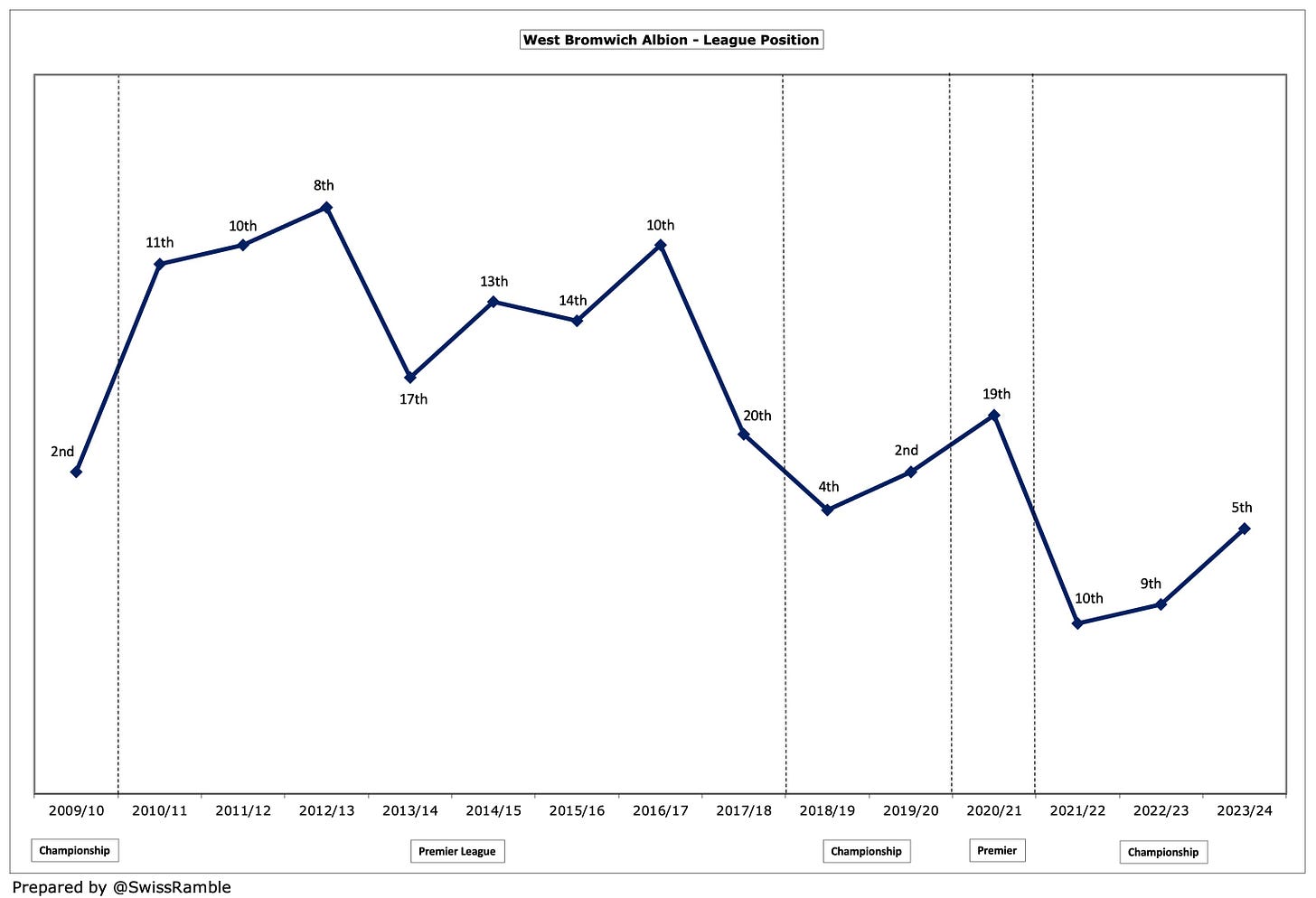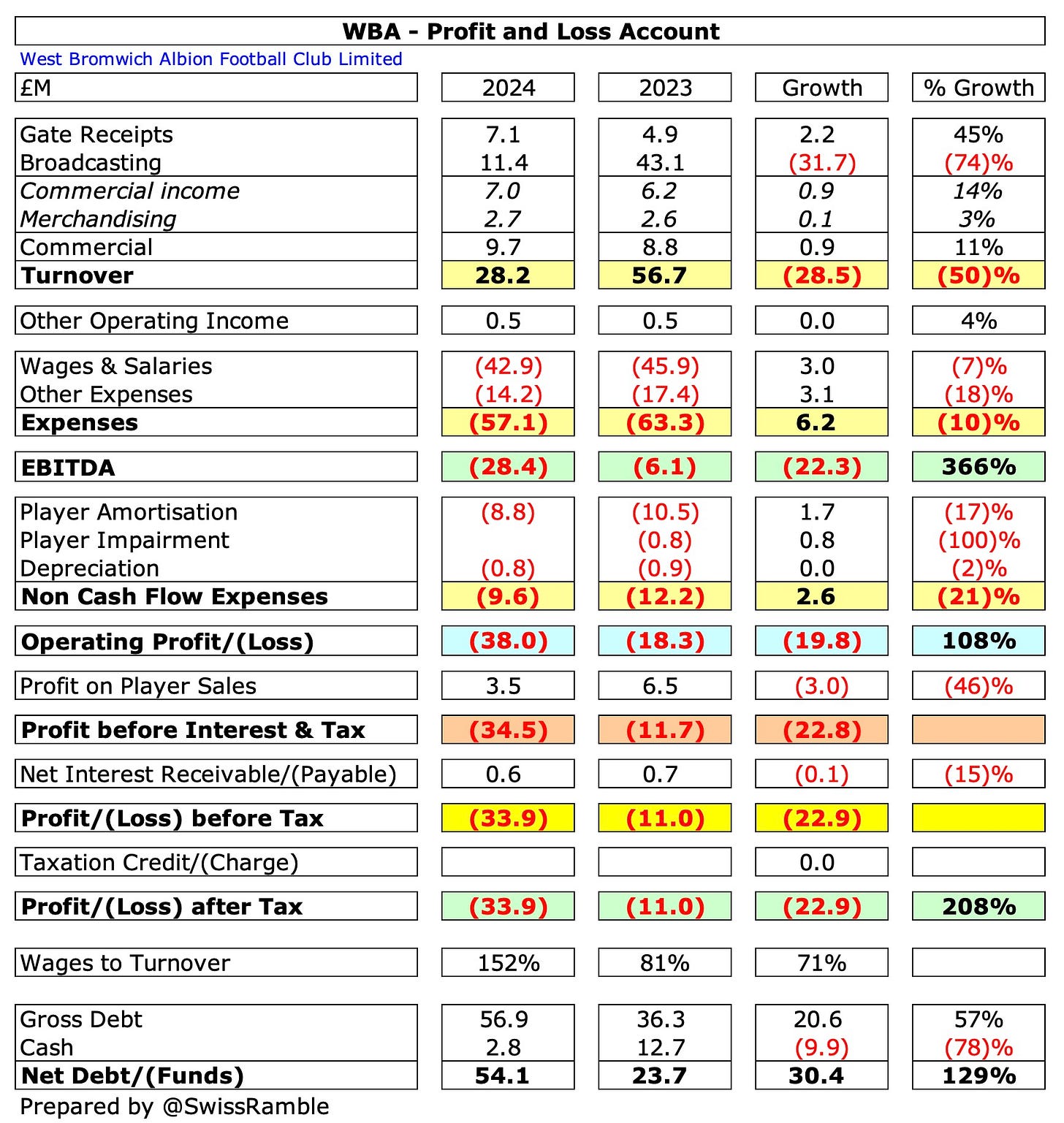West Bromwich Albion’s 2023/24 accounts covered a season where they pushed hard for promotion, eventually finishing in fifth place, thus qualifying for the play-offs, though they lost out to Southampton in the semi-finals.
Much of the club’s success was down to manager Carlos Corberan, though he left in December 2024 to take up the reins at Valencia in his home country. He was replaced by experienced coach Tony Mowbray, who returned for his second stint in charge.
This season is the fourth in a row for West Brom in the Championship, which is the their longest unbroken period out of England’s top flight for more than 20 years, but there is still an air of quiet positivity around The Hawthorns.
Owners
This could be attributed to the change in ownership, as Bilkul Football WBA, a company ultimately owned by Florida-based entrepreneur Shilen Patel and his father Dr Kiran C. Patel, acquired an 87.8% shareholding in West Bromwich Albion Group Limited, the parent company of West Bromwich Albion Football Club, in February 2024.
The remaining 12.2% is owned by minority shareholders, many of whom are represented by Shareholders 4 Albion (S4A).
West Brom had effectively been in decline ever since the club was sold in August 2016 to a Chinese consortium, which bought out former owner Jeremy Peace’s stake. Controlling shareholder Guochuan Lai’s ownership turned out to be fairly disastrous for the club, culminating in numerous financial issues following years of no investment, including a growing amount of high-interest debt and serious cash flow concerns.
Shilen Patel explained the situation thus, “With all the turmoil around the club, the turnover and different situations, it didn’t really have the opportunity to plan beyond the next few months.”
However, that has all changed under the new ownership, “Just by the sake of us being involved, the outlook is stabilised. The club is now no longer worried about the things that it was worried about a year ago, in terms of how are we going to make it to the next season or the next month.”
So let’s take a look at the 2023/24 accounts to better understand West Brom’s financial outlook.
Profit/(Loss) 2023/24
Despite the upbeat mood, West Brom’s pre-tax loss more than tripled from £11.0m to £33.9m, as revenue halved from £56.7m to £28.2m after their parachute payments ended, while profit from player sales also dropped from £6.5m to £3.5m.
The steep revenue reduction was only partially compensated by a relatively small £8.8m (12%) cut in operating expenses to £66.7m, as the club pushed hard to get back to the top flight.
Patel seemed relatively comfortable with the magnitude of last season’s loss, “It’s important to recognise the time period these accounts cover, which is through June of 2024. So, from the time of my takeover of the club, subsequent to the January window, there was not a lot of opportunity for us to make substantial changes to the trajectory the club was on.”
The owner added, “We understood that there were massive losses projected and the cost of acquiring the club was just one of the costs of getting the club back to steady footing. So, in that regard, the losses are within the range that was projected and anticipated.”
Obviously, the main reason for Albion’s £28.5m revenue decrease was the fact that they had no more parachute payments in the third season after relegation from the Premier League, which led to broadcasting falling £31.7m (74%) from £43.1m to £11.4m.
In contrast, there were small increases in the other revenue streams. Gate receipts rose £2.2m (45%) from £4.9m to £7.1m, while commercial was up £0.9m (11%) from £8.8m to £9.7m.
The club also booked £0.5m other operating income.
Normally, when a club experiences such a reduction in revenue, it compensates by cutting costs, but West Brom decided to retain as strong a squad as possible to enhance the prospects of a return to the Premier League, though the gamble ultimately just fell short.
As a result, wages were only cut £3.0m (7%) from £45.9m to £42.9m, though player amortisation was down £1.7m (17%) from £10.5m to £8.8m and there was no repeat of the previous year’s £0.8m impairment. Other expenses decreased £3.1m (18%) to £14.2m.
The vast majority of clubs in the Championship lose a lot of money, but West Brom’s £33.9m is the worst reported to date for last season, a fair bit more than Stoke City £25.7m, Millwall £19.1m and Hull City £18.8m.
Keep reading with a 7-day free trial
Subscribe to The Swiss Ramble to keep reading this post and get 7 days of free access to the full post archives.







